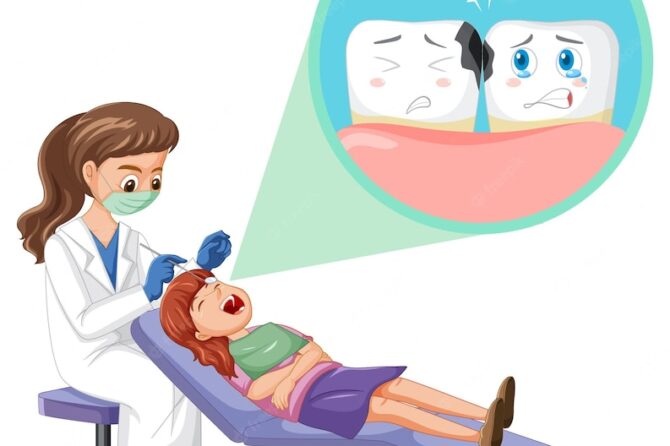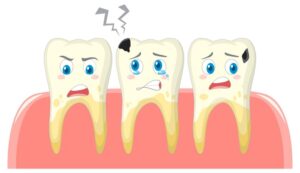
The Importance of Treating Cavities in Baby Teeth
As a parent, it can be concerning to learn that your child has a cavity, even in their baby teeth. The cost and discomfort associated with filling cavities in baby teeth may make parents wonder if they should do it. Here, we’ll discuss the importance of treating cavities in baby teeth and the risks associated with not treating them.
Why Fill Cavities in Baby Teeth?

Baby teeth, also mentioned to as primary teeth, are critical to a child’s oral health and development. They assist children in correctly chewing food, speaking clearly, and developing a healthy smile. Primary teeth also function as placeholders for permanent teeth, assisting with their proper positioning. When a baby tooth is lost first due to decay, the teeth around it can shift, causing alignment issues and other complications.
Bacteria that make acid when they come into touch with sweets in the mouth form cavities, or regions of decay in the teeth. Cavities, if left untreated, can cause discomfort, infection, and even tooth loss. Untreated cavities in baby teeth can potentially impact the formation of permanent teeth, resulting in long-term oral health issues.
When should a baby tooth be filled if it has a cavity?
 The American Academy of Pediatric Dentistry (AAPD) propose that cavities in newborn teeth be filled as soon as they are discovered. This is due to the fact that untreated cavities can swiftly spread and cause more harm to the tooth. Early treatment can help maintain the tooth and reduce the need for future expensive dental repairs.
The American Academy of Pediatric Dentistry (AAPD) propose that cavities in newborn teeth be filled as soon as they are discovered. This is due to the fact that untreated cavities can swiftly spread and cause more harm to the tooth. Early treatment can help maintain the tooth and reduce the need for future expensive dental repairs.
A cavity in a baby tooth is filled in the same way as a cavity in an adult tooth is filled. The decaying section of the tooth will be removed by the dentist and filled with a dental filling material. This can assist in strengthening the tooth and keeping it from decaying further. The surgery is usually quick and painless, and children can return to their regular activities soon after.
The Potential Consequences of Leaving Cavities Untreated

- If cavities in baby teeth are not processed, they can cause a type of oral health issues.
- Pain and discomfort: Untreated cavities in children can cause pain, sensitivity, and discomfort.
- Infection: If the cavity reaches the pulp or nerve of the tooth, infection and inflammation can occur. This can result in a dental abscess, which is a dangerous condition that necessitates prompt treatment.
- Tooth loss: If the decay is serious, the tooth may need to be pulled. Which can cause alignment issues and other complications.
- Eating and speaking difficulties: Cavities can make it difficult for children to chew food properly and speak coherently.
- Long-term oral health issues: Untreated cavities can interfere with the development of permanent teeth and cause long-term oral health issues like misalignment and decay.
To summarize, it is critical to fill cavities in baby teeth as soon as they are discovered in order to prevent further damage and potential long-term oral health issues. The American Academy of Pediatric Dentistry suggests early treatment to protect the tooth and avoid the need for more comprehensive dental work in the future. Our team of pediatric dentists in Dubai and friendly staff at All Smiles Dental Spa provides sensitive treatment and guidance to parents to ensure their child’s dental needs are met. Make an appointment with us today to help you keep your child’s healthy smile.
Leave a reply

Leave a reply